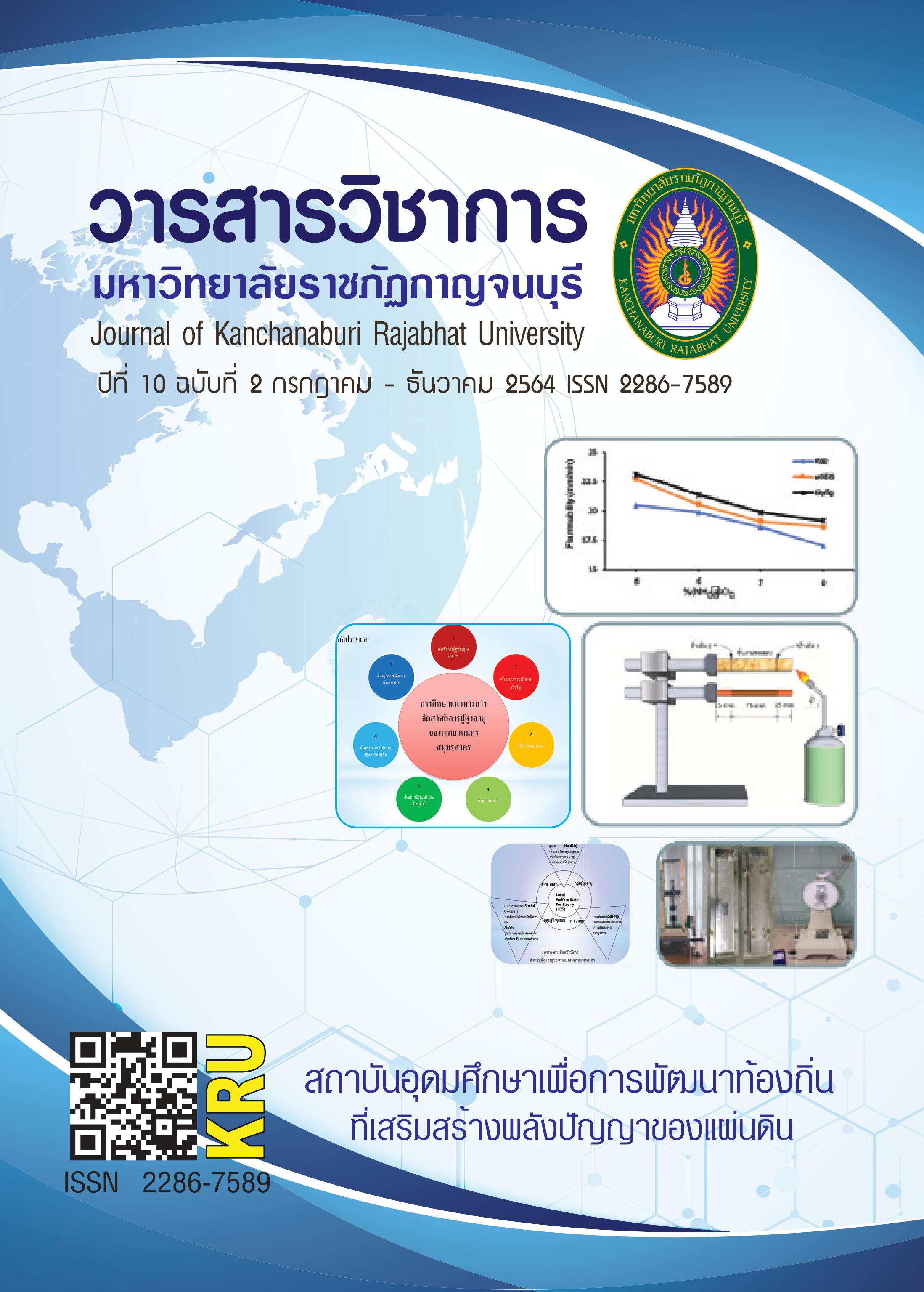A DEVELOPMENT OF EARLY CHILDHOOD NURTURING ACCORDING TO EXECUTIVE FUNCTIONING AND PARTICIPATORY RESEARCH KNOWLEDGE OF EARLY CHILDHOOD PRE-SERVICE TEACHERS WITH EXECUTIVE FUNCTIONING-BASED ACTIVITIES THROUGH ONLINE SOCIAL MEDIA
Main Article Content
Abstract
The purpose of this research was to study the development of early childhood care and participatory research knowledge on the concepts of executive functioning-based activities through social media. The population and sample group comprised pre-service teachers in the Early Childhood Education Program studying educational research in semester 1/2019, Faculty of Education, Suan Dusit University. The data were collected with 51 participants using simple random sample methods. The research instruments included a test of Early Childhood Care Knowledge based on the concepts of executive functioning and participatory research knowledge, and an evaluation form for executive functioning development. Descriptive and T- Test inferential statistics was applied. The results of the research showed that the pre-service teachers’ average scores of childcare knowledge based on the concept of executive functioning before and after conducting the activities were at 50.05 % and 78.9 % respectively, and that their average scores of participatory research knowledge before and after conducting the activities were at 28.3 % และ 60.5 % respectively. The knowledge scores in both aspects were higher after conducting the activities with the statistical significance level at .01. The executive functioning development of young children showed that the average developmental scores in working memory, inhibition and flexibility sharply increased in phase 2, began to decrease slightly and then remained constant during phase 3 and phase 4.
Article Details
References
Battersby, S. & Verdi, B. (2015). The Culture of Professional Learning Communities and Connections
to Improve Teacher Efficacy and Support Student Learning. ARTS EDUCATION POLICY
REVIEW, 116(1), 22-29. DOI: 10.1080/10632913.2015.970096.
Benavides-Nieto,A., Romero-Lopez, M. Quesadez-Conde, A. B.& Corredor, G.A. (2016). Basic Executive
Functions in Early Childhood Education their Relationship with Social Competence.
th International Conference on Intercultural Education “Education, Health and ICT
for a Transcultural World”. EDUHEM 2016, 15-17 June 2016, Almeria, Spain. Procedia –
Social and Behavioral Sciences. 237 (2017) 471 – 478
Esau, O. (2013). Preparing pre-service teachers as emancipatory and participatory action researchers
in a teacher education programme. South African Journal of Education, 33(4), 1-11.
Escorcia-Mora, Tatiana, C., Garcia-Sanchez, Alberto, F. (2018). Early Childhood Intervention practices in the
southeast of Spain: professionals and families perspective. Anales
de Psicología. Oct. 2018, Vol. 34 Issue 3, p. 500-509. 10 p.
Friedman-Krauss, A. H. & Raver, C.C. (2014). Child Behavior Problems, Teacher Executive Functions,
and Teacher Stress in Head Start Classrooms. Early Education and Development, 25(5), 681-702
Goodyear, V. A., Casey, A., David, K. (2014). Tweet me, message me, like me: using social media to facilitate
pedagogical change within an emerging community of practice. Sport, Education & Society, 19(7), 927-943.
Graziano, P. A., Garb, L. R., Ros, R., Hart, K.& Garcia, A. (2016). Executive Functioning and School Readiness
Among Preschooler Externalizing Problems: The Moderating Role of the
Student-Teacher Relationship. Early Childhood development. 2016, Vol.27, No.5. 573-589.
Gutman, M. & Genser, L. (2017). How pre-service teachers internalize the link between research
literacy and pedagogy. Educational Media International, 54(1), 63-76.
doi.org/10.1080/09523987.2017.1324353
Harvard University. (2019). Enhancing and Practicing Executive Function Skills with Children
from Infancy to Adolescence. June 26, 2019, Retrieved from https://children.wi.gov ›
Documents.
Lin, B. & Liew, J. & Perez, M. (2019). Measurement of Self-Regulation in Early Childhood: Relations
between Laboratory and Performance Based Measure of Effortful Control and Executive
Functioning. Early Childhood Research Quaterly, 47, 1-8.
Master, J. (1995). The history of action research. In I. Hughes (ed.), Action research electronic reader. Sydney:
The University of Sydney. www.docstoc.com/docs/2187576/THE-HISTORY-OF-ACTION-RESEARCH.
Master, J. (1995). The history of action research. In I. Hughes (ed.), Action research electronic reader. Sydney:
The University of Sydney. www.docstoc.com/docs/2187576/THE-HISTORY-OF-ACTION-RESEARCH.
Master, J. (1995). The history of action research. In I. Hughes (ed.), Action research electronic reader. Sydney:
The University of Sydney. www.docstoc.com/docs/2187576/THE-HISTORY-OF-ACTION-RESEARCH.
Maclean, K., Edwards, S., Morris, H. (2017). Community playgroup social media and parental
learning about young children's play. Computers & Education, 15, 201-210.
McClelland, M. M. & Tominey, S. L. (2014). The Development of Self-Regulation and
Executive Function in Young Children. Zero to Three, 35 (2), 2–8.
Sum, K.C. & Cheuk, S.K. (2019). Hong Kong pre-service early childhood teachers’ attitudes
towards parental involvement and the role of their family relationship quality.
Journal of Education for Teaching, 45(4), 417-433.


